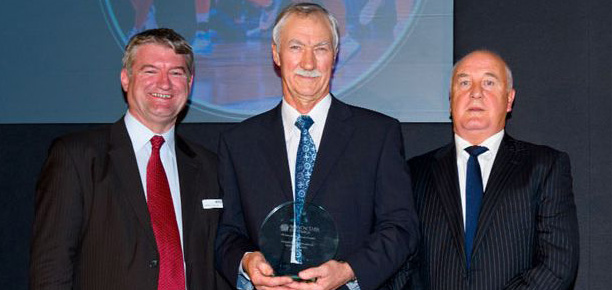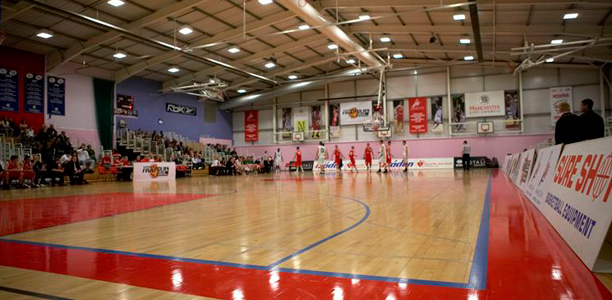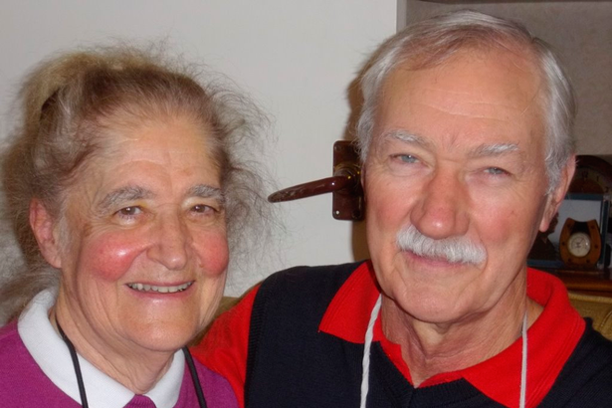Hoopsfix 1 on 1: Joe Forber

There are very few people involved with British basketball that are as respected as Manchester Magic’s Joe Forber (pictured above, centre). The Manchester Magic programme have been a regular fixture in the Final Fours across all age groups, winning 57 titles over the past 10 years, most recently the 2011 Under-13, 14, 15 and 16 titles, and Forber is the man behind it all. We managed to get a quick minute with him to do a little Hoopsfix 1 on 1!
Hoopsfix (HF): Hi Joe, thanks doing this! For those that don’t know can you talk a little bit about your background? How did you first get into basketball, how long have you been involved with it for now and what your current involvement is?
Joe Forber (JF): My background is rugby. Being born and bred in St Helens, there was no other sport. I did not know basketball existed until I started teaching and was then required to find out something about the game in order to teach the pupils. I got hooked and rugby took a back seat after that. There are people at the Club who think, even now, with some justification, that I know more about rugby than I know about basketball.
HF: Who are some of the biggest influences on your career? Is there anyone who provided you with a lot of guidance or you go to when you need advice?
JF: Firstly, I would mention the fiery Mike Burton from Cheshire, because of my very close friendship with him over many years and a guy I trust implicitly. Secondly, Graham Williams, who was instrumental in beginning the Club with me – not just for his knowledge of the game but more for his coaching philosophy which coincides with mine. i.e. the respect generated between players and coach is the key to coaching youngsters. ‘In your face’ coaching is not our thing at all. But, unquestionably, the biggest influence has been my wife, Maggie, for unconditional support and for teaching me to always try to see the best in people (which, in my case, is a big ask).
HF: Why do you think the Manchester programme has been so successful? What are the contributing factors?
JF: There is not a single answer to this, but some important factors may be:
• Setting out our philosophy and sticking to it, regardless of any pressures to bend our beliefs.
• Building on good foundations, primarily good people. I am very poor at short term fixes but rather better at building something substantial and not being concerned about how long it takes to get there.
• Not being overly concerned with winning trophies but definitely being concerned with convincing players, coaches, and other personnel that we need to give our best at all times. This is fundamental to all we do at the Club.
• Trying to maintain the highest of standards and quality in everything that we do, in all areas – preparation and quality of practice, timekeeping, disciplines, respect for other people, etc.
• Without seeming to state the obvious, we do work hard. Whatever success we have had, has not just happened. People outside the Club may have a feel for this but you would have to be an insider to know the tremendous efforts made by many people at the Club.
HF: What do you think needs to be done to really grow the game and improve the standard in this country?
JF: This would have to be a much longer discussion. I do not wish to pontificate here as I have no grounds to do so, but some points which may be relevant:
• The quality of coaching is just not good enough.
• People in the game, including ourselves at Manchester, have to realise that we just do not work hard enough. Compared to many other sports, we simply are not taking the sport seriously enough.
• The status of coaching is not good at all in basketball. It may need a considerable financial investment to change this situation.
HF: At the beginning of this season Manchester had a bit of an overhaul and you decided to focus on your younger players and stay in Division 3 (with the D1 side folding) with the intention of gaining promotion to Division 1 within 3 seasons – many have asked, why not just stick in Division 1 in the first place?
JF: For me, this is a no-brainer. We HAD to begin anew, with a totally different Senior team philosophy which encouraged the further development of our young players. This would not have worked from a Division 1 situation – new coach, young, inexperienced players – we would have been trying to build a new system in the negative atmosphere of a losing team and probably finished with Division 2 status for next season anyway, by dint of relegation. We hope we have done enough from our Division 3 achievements to gain Division 2 status next season, but all personnel in connection with the Senior team will have much work to do if we are to achieve our future goals – players, coaches, administrators, etc. As I said, we have no interest in short-term fixes but have a long-term plan to play at the highest level of English Senior basketball.
HF: How have you felt your first season solely in Division 3 has gone?
JF: On the whole, we have reached our objectives. Some blips along the way, but it would seem that our primary aim of Division 2 status has been achieved. We do have a solid foundation to move forward with our new policy.
HF: You’ve obviously seen a lot of basketball over the years, are there any particular moments that stand out? Most impressive individual performances and your own proudest moments?
JF: Impossible to answer this, but, in terms of what our Club stands for, it may help to know that I am very proud of our Final Four achievements in the last 2 years – qualification in all age groups, i.e participation in all 8 Final Fours in both 2011 and 2012 (boys and girls). For me, this is a bigger achievement than any National Cups and Championships we may have won, because it says so much about our work across all the age groups, and also about the large number of Club people who have been a part of this.
HF: How have you seen the game changed in all the years you have been involved?
JF: We ARE making progress. Younger players are working harder (though not hard enough). The Academies throughout the country have helped to give young players the opportunity to take the game more seriously.
I am a little out of touch with BBL, so it is difficult for me to comment on this League. I do believe that the EB Leagues have improved significantly and more of our better, younger players are doing well at that level. I was quite buoyed up by the Final Fours at Amaechi Basketball Centre last weekend – good product, great atmosphere, young players on the floor making major contributions.
HF:Who is the best player you’ve ever seen?
JF: Impossible to decide the best player – too numerous to mention. If you wish me to make a judgement on the best over-achiever, I would have to say John Amaechi. He deserves the greatest respect as a player for his success story in the NBA, given his physical limitations.
HF: What advice would you give to young aspiring players who want a basketball career?
JF: • Work very, very hard.
• Listen to people you trust and respect and avoid the people who may be taking you for a ride for their own benefit.
• You will probably have to make a major decision when you are young which will dictate your career. It may involve changing clubs, going to a foreign country, moving away from your family etc. It may cause upheaval, upsets, recriminations but, unless you go for it, you will never know……
HF: And on the same note, what advice would you give to coaches who want to get better?
JF: A short story: In the very early days, 1970s, when I was acutely conscious of my basketball limitations, I took a journey down to London with a very good friend of mine, to visit with a basketball coach. The coach’s name was Roy Packham and he was a very, very dominant force in English basketball at that time. We took Roy out for a meal and plied him with questions for 3 hours about his success story, before driving back home. The visit saved us so much time in terms of developing a Club. This was the beginning of formulating a personal philosophy towards my involvement in basketball – much more than just coaching, but in all aspects. Coaches, there is tremendous knowledge out there now in English basketball. Look for it, find it, evaluate it and develop your own philosophy.
Perhaps the following quotation from an American High School Coach will give an insight to part of my philosophy:
‘The game is played by human beings. You can be the most brilliant technician in history, and your players the best-schooled ever in the technical points of the game, but your teams will always underachieve if your players do not feel inspired to excel out of pride for both their team and themselves. I only achieved real success as a coach when I fully understood that I was not teaching Xs and Os but I was teaching people’.
HF: Thanks so much Joe!
Manchester Magic are having their junior trials on Saturday 12th May and their senior trials on Sunday 13th May at the Amaechi Basketball Centre. For more information, you can download the junior trial leaflet here, and the Division 2 Men trial information here.
Image Credit: Manchester Evening News





45 Comments